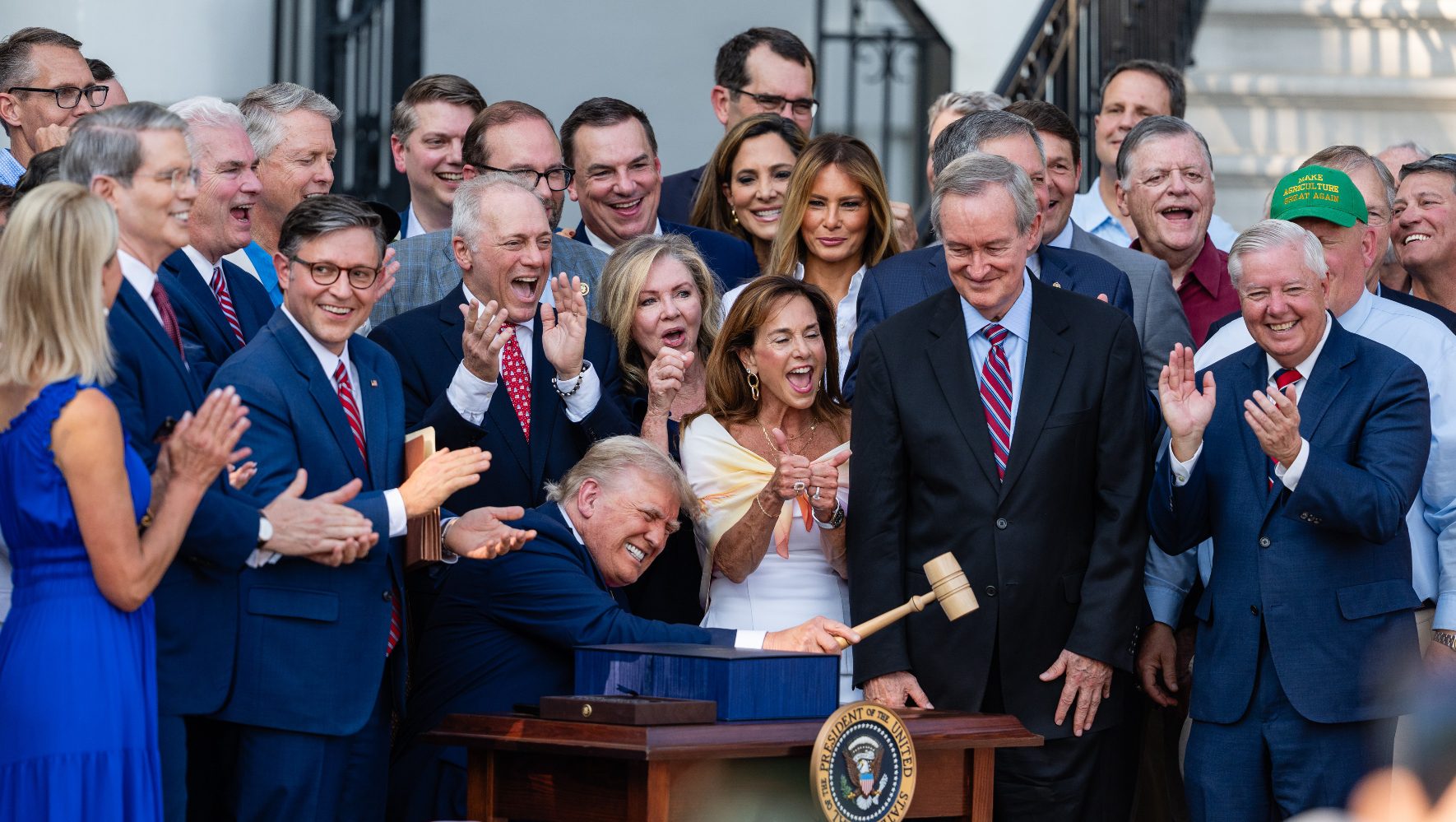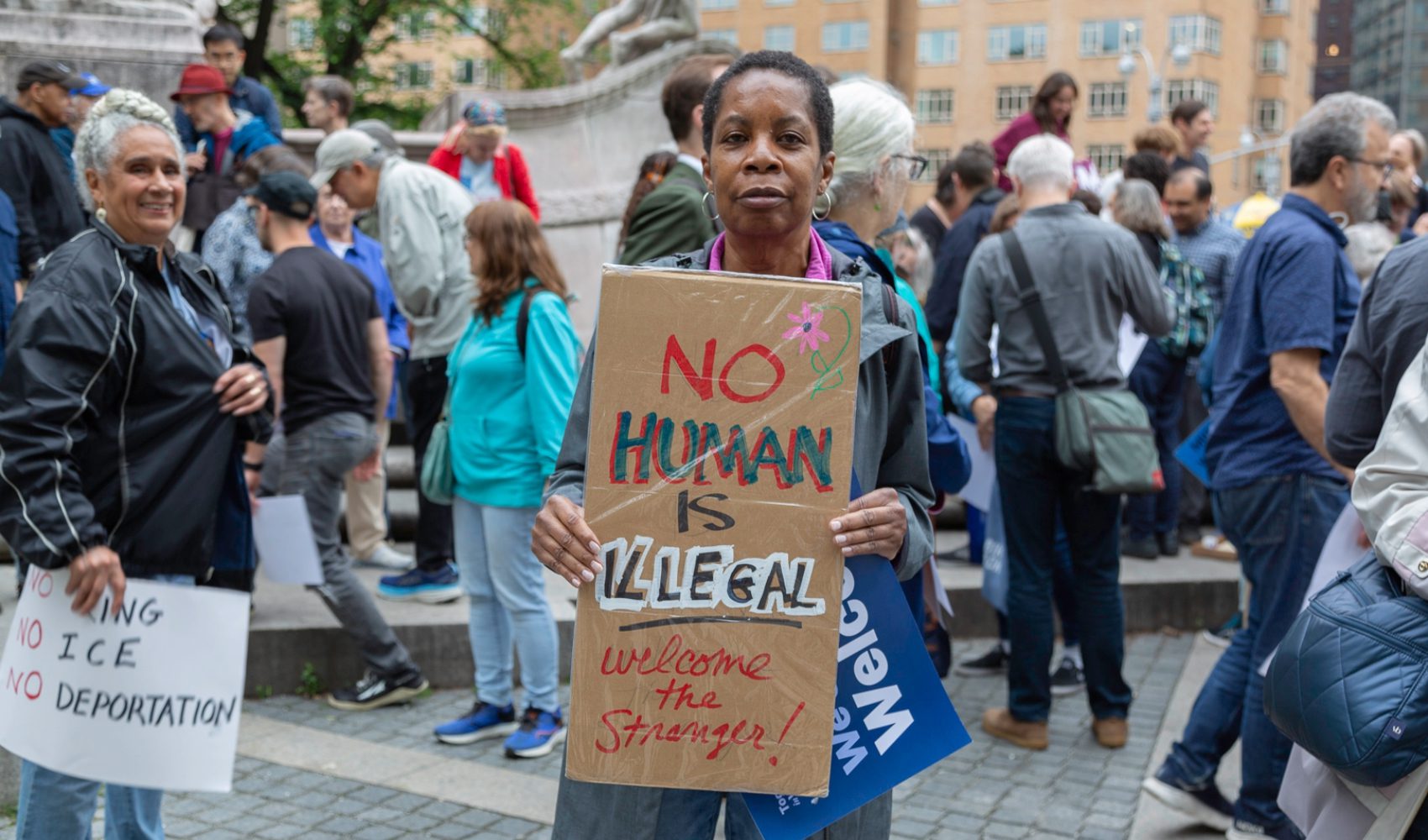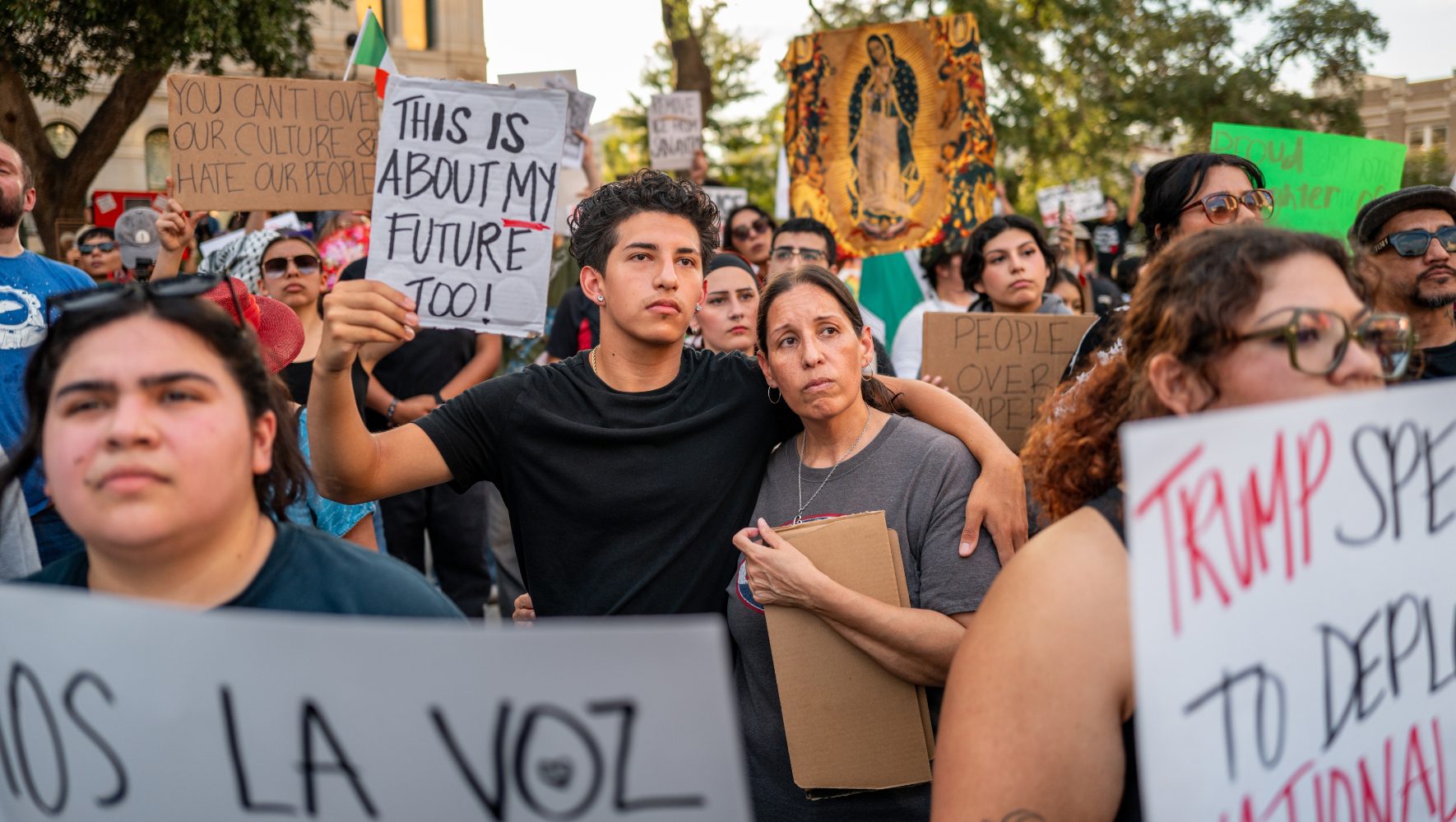NGO Leaders Send Open Letter to the Next President
Oct 19, 2016
An open letter to the next president of the United States, signed by the heads of 38 NGOs, including HIAS CEO Mark Hetfield, urges the next leader to "pause and consider what kind of president will you be and what will be your legacy on confronting today's most pressing international development and humanitarian challenges." The full text of that letter is below.
To the Next President of the United States:
Today our country is engaged in a historic and monumental national election—a time of heated political campaigns and intense partisan debates. But soon the sloganeering, ads buys, and public rallies will end. No matter who wins, at that time it will be important to remember that many things transcend politics, and that elections, while vitally important for our democracy, are the beginning, not the end of your work.
For then the real challenge starts, as you turn your attention from striving for victory to overcoming daunting, current U.S. foreign policy challenges, from the humanitarian crisis in Syria to the ongoing struggle against hunger around our world. And as leaders of our nation's foremost international development and humanitarian civil society organizations, we stand ready to work with you.
The world is waiting to see what you do and is a little worried. The legacy of international aid and development led by the United States is truly enormous and there have been some remarkable successes. If you ignore the suffering of those outside your borders you risk diminishing the very cloth that has made this country so great in the eyes of those whom it has helped. And the cost of turning away from pressing global development challenges, over the long term, would be far more than the cost of continuing to help empower the poorest among us to create better lives for themselves, their families, and their communities. As they are lifted up, so is the entire global community.
Alleviating poverty and suffering is not only possible, it is the morally right thing to do and vital to our own national interest. Every war and every unstable country, every region stricken by disease or crop failure, every city hit with flooding or famine is a potential source of instability. In today's interconnected world America cannot afford to sit on the sidelines and hope for the best. Walls and borders will not keep us safe.
But the bulwarks against global instability cannot come just from civil society organizations, such as ours, or the millions of generous Americans who support our efforts. We must work in active partnership with you, your cabinet, and the leadership of the new Congress. Wise leaders understand that by helping others they also help their own citizens. And the calling to respond to the struggles of others is one that crosses many of political, religious, economic, and other lines that too often divide our nation.
Every stable country, every nation lifted out of poverty, every region assisted through a time of natural disaster is a potential trade partner, a possible geopolitical ally, a future friend. Leaders ignore such challenges at the risk of spurning opportunity. Some will say that the burden is too great, that we can't afford to help everyone, that the world's greatest problems have always been thus and forever will be so. This is the ultimate in shortsightedness.
Without long-range vision, strategic leadership, and generosity, we wouldn't have solved the worldwide scourge of smallpox, which once killed millions, or brought polio to the point of vanishing. We wouldn't have seen devastated nations arise from the ashes of deadly wars and rebuild to become firm allies and major trading partners. We wouldn't have assisted millions around the globe in gaining the resources and training that would help them lift themselves out of lifelong poverty.
We see the results of concerted action all around us. The World Bank recently reported that in 2013 world poverty decreased by 114 million people—in just one year. Over a decade ago almost a billion people globally were considered undernourished; today the number is just under 800 million. Six million children lived last year that in 1990 would have died of preventable causes. And a courageous partnership between NGOs and leaders in the public and private sectors successfully fought the deadly 2014 Ebola outbreak. True, many challenges remain, but clearly progress is possible. The only problems that are certain never to be solved are those that are never tackled.
So on the cusp of launching your administration; we urge you to pause and consider what kind of president will you be and what will be your legacy on confronting today's most pressing international development and humanitarian challenges. Will you build strategic partnerships to tackle pressing global challenges? Will you support us in our efforts to uphold the dignity and power of all marginalized people, from women to people with disabilities? Will you work with civil society leaders to help empower those seeking to lift themselves and their communities out of extreme poverty? Will you take action against clear violations of international humanitarian law and urge world leaders to do better? Will you act promptly to appoint qualified leaders to run our country’s development agencies?
America has a long and proud bipartisan legacy of leadership on issues of international development and humanitarian assistance, a tradition you soon will inherit. And as leaders of our nation's foremost civil society organizations dedicated to making the world a more peaceful, just, and prosperous place we—and the millions of Americans who support our work—will be watching to see how your future administration acts to proactively build on this vital U.S. foreign policy legacy.
Samuel A. Worthington, CEO, InterAction*
Lindsay Coates, President, InterAction
Amy Coughenour Betancourt, NCBA CLUSA
Anwar Khan, Islamic Relief
Bob Kelty, AMREF
Caroline Crosbie, Pathfinder International
Daniel Wordsworth, American Refugee Committee
David Beckmann, Bread for the World
David Miliband, International Rescue Committee
David Offensend, Education Development Center
Donald Steinberg, World Learning
George Guimaraes, Project Concern International
J Ron Byler, Mennonite Central Committee US
Jacinta Tegman, World Concern
Jeanne Bourgault, Internews
Jeff Meer, Handicap International
Jim Mitchum, Heart to Heart
John Lyon, World Hope International
Kate Schecter, World Neighbors
Kathy Calvin, United Nations Foundation
Leo O’Donovan, Jesuit Refugee Service USA
Linda Hartke, Lutheran Immigration and Refugee Service
Linda Pfeiffer, INMED Partnerships for Children
Lucy Sullivan, 1000Days
Majd Isreb, SAMS Foundation
Mark Hetfield, HIAS
Melanie Greenberg, Alliance for Peacebuilding
Michael Deal, Volunteers for Economic Growth Alliance
Mischelle Rudzinski, Spoon Foundation
Pape Gaye, IntraHealth International
Rebeca Middleton, Alliance to End Hunger
Rick Santos, IMA World Health
Robert Radtke, Episcopal Relief and Development
Rod Brooks, Stop Hunger Now
Sarina Prabasi, WaterAid America
Scott Sabin, Plan with Purpose
Thomas Dente, InsideNGO
Tosca Bruno-van Vijfeijken, Transnational NGO Initiative
William Abrams, TrickleUp
William Reese, International Youth Foundation
*All organizations are listed for identification purposes only


